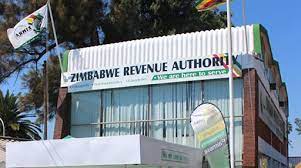Sofia Mapuranga
The Zimbabwe Revenue Authority (Zimra) has lost tax records dating back to six years ago, NewsHub has established.
The tax authority ignored several calls for an explanation, so it could not be verified how the records were lost.
However, there is speculation that its digital repository and server crashed and the taxman’s manual records are in shambles.
Sources who spoke to this publication indicated that the tax utility lacks a reliable backup system for its data.
They said the server might have been hacked or the designer did a shoddy job.
This publication had sight of emailed generic correspondence from Zimra to its broad base of clients whereby the authority is requesting them to resubmit their Pay as You Earn (Paye) P2 forms, Valued Added Tax (Vat), and Income Tax (ITC) records stretching to 2017.
In the communication circulated to clients, Zimra described the returns as “outstanding”, even though numerous clients that NewsHub engaged proved that they were up to date with their submissions.
The revenue authority requested its clients to re- submit the outstanding returns online and the companies, NGOs and other corporates were busy making the re-submissions to avoid falling foul with the law.
NewsHub reached out to the Zimra head of communications, Gladman Njanji, but he ignored the questions sent to him.
Another official in the same department, Francis Chimhanda, had requested the questions in writing but, despite repeated reminders, there were no responses.
Zimbabwe is heavily dependent on taxation to fund the fiscus, with the 2022 mid-term fiscal review indicated that taxes—among them Vat, customs duty, Paye, corporate tax, excise duty—contributed 97.6 percent to government revenue.

The country ranks very high among global economies that heavily tax citizens, corporates and other business players.
In its revenue performance report for the fourth quarter ended 31 December 2022, the authority reported that it collected a total net of ZWL$2 trillion against the targeted ZWL$1.6 trillion.
Prosper Chitambara, an economist, allayed fears of financial losses at the authority owing to the systems crash.
“It is highly likely that most companies or organisations are up to date, hence it will not prejudice the state that much,” Chitambara told NewsHub.
However, there are fears that current tax evaders might take advantage of the records loss, implying heavy leakages in potential revenue.
The tax utility has admitted that tax evasion is limiting its revenue collection efforts.
In March 2022, Regina Chinamasa, the Zimra commissioner general, admitted that “fraudulent conduct resulted in the state being prejudiced of taxes and levies”.
The US-based Global Financial Integrity reported in 2021 that Zimbabwe lost US$1 billion through under-invoicing alone in the preceding 10 years.
A consultant who handles the financial services of more than 5 companies confirmed the Zimra resubmission request.
“One of my clients’ account was remitting all the tax records to ZIMRA but we were told last October to resubmit monthly VAT returns dating back to 2019 and, because of compliance issues, we will have to resubmit,” he said anonymously.
The consultant said such a scenario posed a great risk to the government body losing millions as companies and private firms could doctor the monthly returns to satisfy compliance.
“It is highly likely that firms will just indicate arbitrary figures which may not project the real revenue collections and prejudice the state,” added the consultant.
Common forms of tax-related corruption include direct tax evasion, under-declaration, falsification of records, money laundering, skewed tax holidays, smuggling and fraudulent externalisation of profits and funds to tax havens.



Comments are closed.